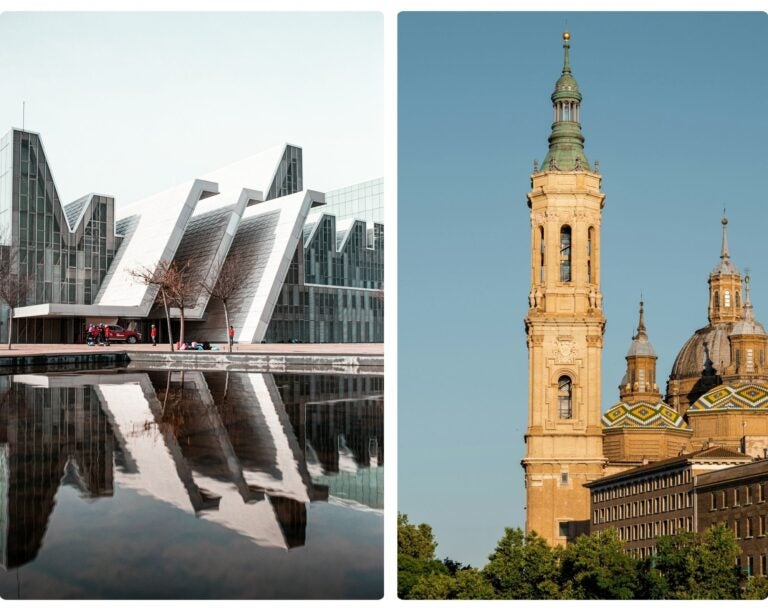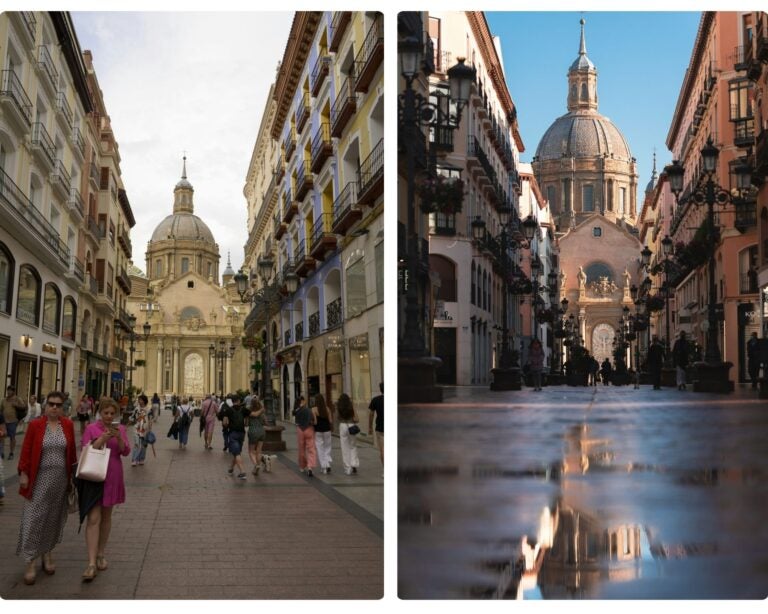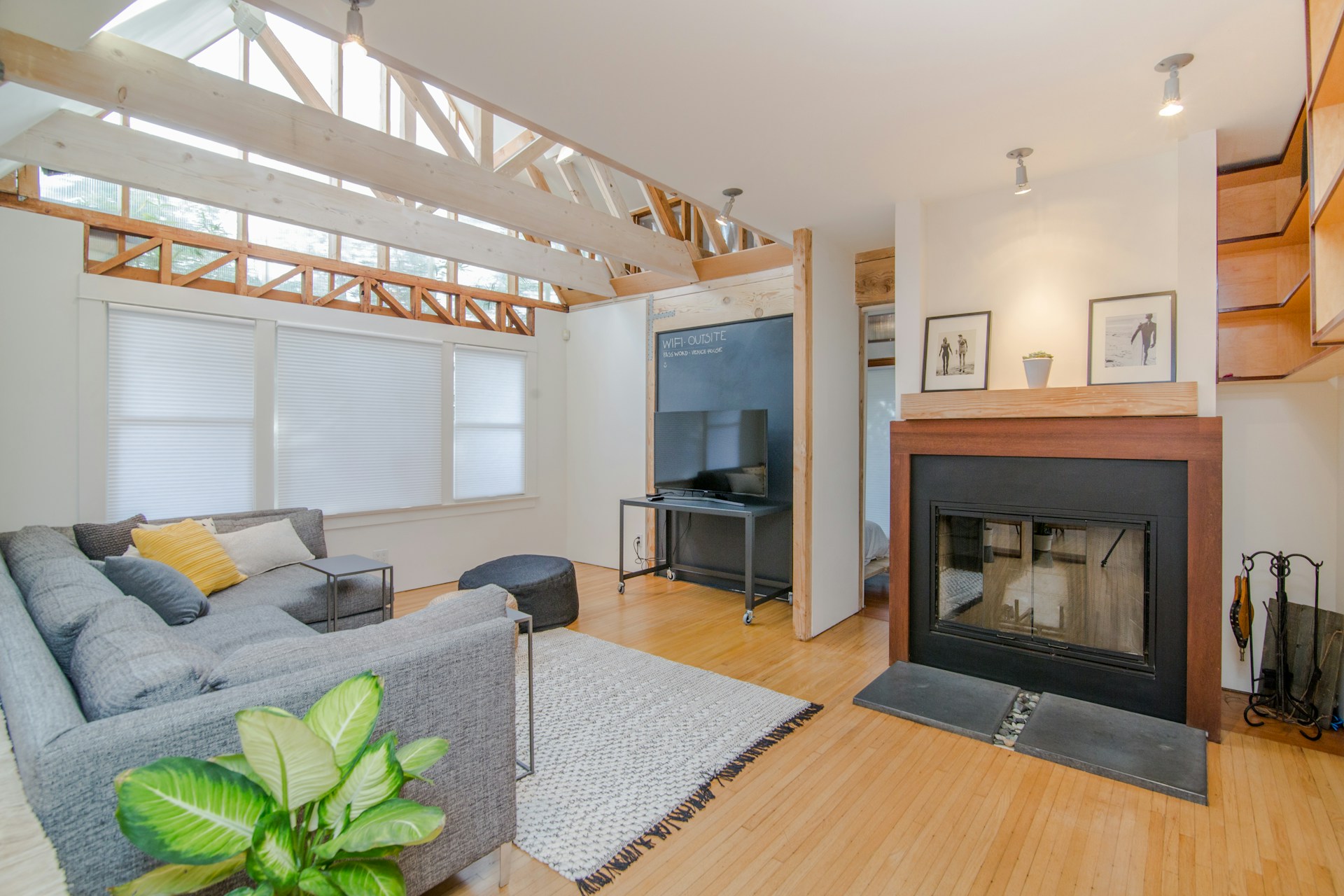Live in Zaragoza: Learn advantages, disadvantages & costs
Discover what it's like to live in Zaragoza, including pros, cons and key information. Thinking of moving? Read this guide before you decide.
Settling down in Spain doesn’t have to be complicated, especially if you know the advantages each city has to offer. Today we’re taking a closer look at what it’s like to live in Zaragoza. As the capital of Aragón, the city stands out to foreigners and newcomers who want to experience life in Spain. On top of that, the latest survey by the Consumers and Users Organization (OCU) paints a positive picture, placing Zaragoza among the top two cities in Spain for quality of life.
In this guide, we’ll explore the advantages that make Zaragoza such an attractive place to live, from its quality of life and access to public services to the way its education system works. We’ll also take a look at the main challenges the city faces, its drawbacks, and some key facts you should know. Let’s dive in.
Quality of life in Zaragoza
To begin with, let’s look at some facts about the quality of life in Zaragoza:
Education
In Zaragoza, education follows the broader system used across Aragón and the rest of Spain. Children typically begin with preschool, and schooling is both free and mandatory from the age of three until they turn sixteen. In some public schools, families can even enroll their children a year earlier. To make sure every child has access, the Government of Aragón assigns places in schools within each community, or at the closest available option when a local school isn’t available.
When it comes to higher education, Zaragoza offers a wide and high-quality selection. The city is home to the University of Zaragoza, one of the oldest in Spain, with a broad range of academic programs. There are also private institutions and vocational training centers, such as San Jorge University and the San Valero Center, which add to the city’s educational options.
Safety
In general, Zaragoza is considered a fairly safe city. Some facts about public safety are:
- Perception of insecurity: A recent study revealed that 65% of Zaragoza residents believe there are significant security issues.
- Police and security forces: Zaragoza has a strong presence of the National Police and Civil Guard, as well as the Local Police Force.
- Security measures: The Zaragoza City Council is taking steps to boost safety, including adding more surveillance cameras and setting up security patrols in high-risk areas.

Cost of living
Zaragoza is considered one of the most affordable cities to live in Spain, thanks to its lower cost of living compared with other major cities. Here are a few key points:
- Transportation: Public transportation in Zaragoza is affordable, with a monthly pass costing $25 or single tickets at $2.
- Utilities: Basic utilities (water, electricity, gas, and internet) can cost between $120-170per month.
- Entertainment and leisure: These are relatively affordable, with prices ranging from $10-40 for a movie ticket, a coffee at a bar, or a beer.
The economy of Zaragoza
- Salaries: The average income for a couple in Zaragoza is around $50,000, which corresponds to an average expenditure of about $20,000.
- Economic development: It has a diversified economy, with important sectors such as the automotive industry, logistics, and agriculture.
- Strategic location: The city is located halfway between Madrid and Barcelona, making it a strategic location for business.
Healthcare system
Healthcare in Zaragoza is efficient and easy to access. The city has both public and private hospitals offering quality care, and everyone living there, whether temporarily or long term, can count on comprehensive medical services. Zaragoza is well prepared to meet the health needs of its residents.
For example, Zaragoza’s Hospital Clínico Universitario Lozano Blesa is recognized as the top public hospital in Aragón for its healthcare reputation, according to the 2024 Health Reputation Monitor. More broadly, the Hospital Universitario Miguel Servet is also regarded as one of the best hospitals in the region.
Connectivity and Internet
Zaragoza has a modern and well-developed telecommunications infrastructure. Providers like Vodafone and DIGI offer fiber optic services with speeds of up to 10 Gbps, making remote work and access to digital services easier. In addition, 5G mobile coverage is expanding, further improving connectivity across the city.
Stay connected in Zaragoza with Holafly
To stay connected from the moment you arrive, Holafly offers eSIM cards for Spain with unlimited data and no hassle. You can activate your eSIM right at the airport, avoiding roaming fees or the need to hunt for a local SIM.
If you’re planning to spend a longer period in Europe and travel between countries, Holafly’s monthly plans are a great option. They make it easy to stay connected, share data with other devices, and avoid any concerns about roaming or mobile data wherever you go.
Important: If you are a frequent traveler and want to stay connected without worrying about expensive roaming or looking for a new SIM at every destination, Holafly’s subscription plans are for you. With a single eSIM, enjoy internet in more than 170 countries for a fixed price and no surprises on your bill. Travel without limits and connect easily and securely! 🚀🌍

Advantages of living in Zaragoza
Let’s take a look at the many benefits for foreigners who decide to settle in this city.
1. Strategic location and excellent connectivity
Zaragoza enjoys a prime location in northeastern Spain, right between Madrid and Barcelona. Its position makes it easy to travel quickly to either city via high-speed trains (AVE), making it perfect for both business travelers and those looking to explore other parts of the country.
The city also has a network of modern highways and an airport offering both domestic and international flights, further enhancing its connectivity. This infrastructure makes Zaragoza a key logistics hub in the Iberian region and an attractive location for both national and international businesses.
2. Affordable cost of living
Many foreigners are drawn to Zaragoza because it offers a more affordable cost of living. Housing is significantly cheaper than in cities like Madrid or Barcelona. Idealista reports that the average price per square meter is around $2,200, placing Zaragoza among Spain’s most economical capitals for buying property.
Monthly expenses for transportation, utilities, entertainment, and groceries are quite reasonable. A public transport pass costs around $26 per month, while basic services like electricity, water, and internet range between $110 and $170. This balance of quality and affordability is one reason many people consider Zaragoza a budget-friendly city.
3. Job opportunities and economic development
Zaragoza has seen growth in industries such as automotive, logistics, energy, and information technology, driven by investments from companies like Amazon Web Services, Microsoft, and Inditex. These businesses have created quality jobs and strengthened the city’s innovation ecosystem.
4. Cultural life, history, and access to nature
Zaragoza’s historic center features landmarks like the Basilica of El Pilar and the Aljafería Palace, reflecting a mix of Islamic and Baroque architecture. The city comes alive with cultural events throughout the year, including the Fiestas del Pilar and the Asalto Urban Art Festival.
Zaragoza offers plenty of cultural spots, from museums and theaters to contemporary art venues. For nature lovers, the city’s proximity to the Pyrenees makes it easy to enjoy activities like skiing, hiking, and cycling.
5. Community and international presence
In addition to its friendly locals, Zaragoza has a growing international community, supported by networks like InterNations and language and cultural exchange groups that host weekly events. This active community plays an important role in helping foreigners build social and professional connections.

Disadvantages of living in Zaragoza
While Zaragoza offers many benefits for those choosing to settle there, it also comes with some challenges that are worth keeping in mind.
1. Extreme weather and the presence of the “Cierzo” wind
Zaragoza has a cold semi-arid climate, with chilly winters and hot summers. Winter temperatures can drop below 0°C, while summer highs often exceed 35°C, sometimes reaching up to 40°C.
The city is known for the “Cierzo,” a strong, dry wind that blows frequently, especially in autumn and winter, making the cold feel even sharper and affecting daily comfort. These weather conditions can be challenging for anyone not used to extreme climates.
2. Unpredictable public transportation
Zaragoza’s public transportation system, made up of buses and a tram line, serves much of the city. However, some residents have noted that service frequency and reliability can be inconsistent, especially during late hours or on weekends.
Coverage in certain outlying areas may also be limited, which could make travel difficult for those who live in these areas.
3. Inequality in access to housing
In recent years, Zaragoza has seen a growing demand for housing, which has led to a shortage of affordable options, particularly for foreigners.
Recent cases have highlighted situations where immigrants have been subjected to exploitative rents in unregulated housing, often facing overcrowding and a lack of basic services.
Frequently asked questions about living in Zaragoza
Zaragoza is regarded as one of the safest cities in Spain, with low crime rates, making it an ideal choice for families and anyone seeking a peaceful lifestyle.
The cost of living in Zaragoza is fairly moderate. A single person can expect to spend between $1,000 and $1,550 per month, depending on their lifestyle, with rent being more affordable than in cities like Madrid or Barcelona.
Zaragoza has a strong public healthcare system, supported by private clinics and hospitals. Residents can access a wide range of medical services and specialists.
The job market in Zaragoza is competitive. That said, industries such as technology, logistics, and education provide opportunities, especially for those with relevant training and experience.
Zaragoza is full of history and culture, with plenty of museums, theaters, and festivals. The city also offers a lively nightlife and a diverse food scene, with something to suit every taste.





 Language
Language 


















 No results found
No results found







